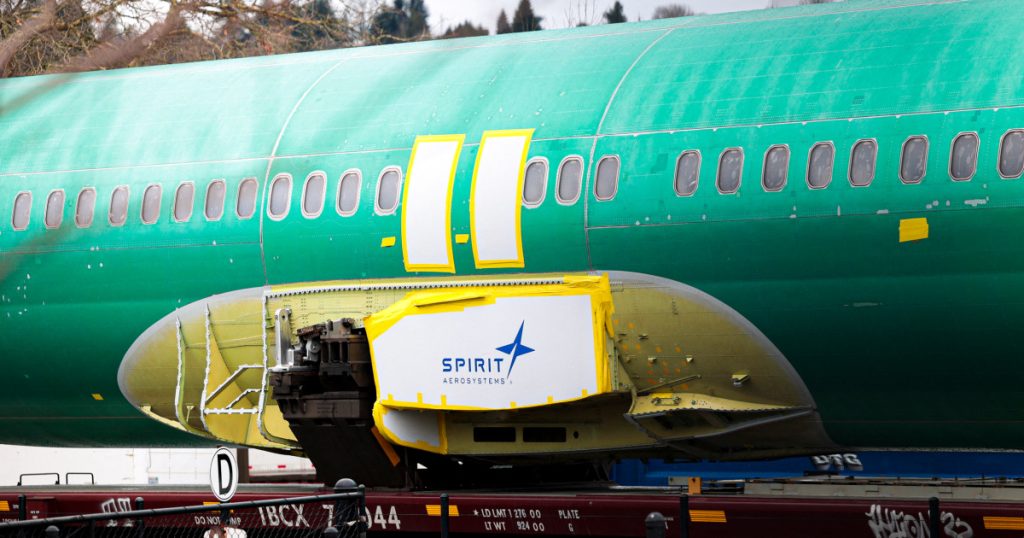Two Boeing whistleblowers have tragically passed away, raising concerns about their deaths following their involvement in speaking out about safety concerns within the aviation industry. Joshua Dean, a former quality auditor at Boeing supplier Spirit AeroSystems, recently died after being diagnosed with multiple illnesses including the flu, pneumonia, and MRSA. His sudden death has prompted his family to seek an autopsy, as he was considered a healthy individual. Dean had raised concerns about manufacturing defects on the 737 MAX planes, including mis-drilled holes in the rear bulkhead that could threaten an aircraft’s structural integrity. He alleged that managers failed to act on these defects, leading to his termination in what he believed was an act of retaliation.
Another whistleblower, John Barnett, also spoke out about safety failings with the 787 Dreamliner and tragically died from a self-inflicted gunshot wound. Barnett’s attorneys had been representing him in a legal action against Boeing, and his case was set to go before an administrative law judge. The deaths of both Barnett and Dean have raised questions about the treatment of whistleblowers in the aviation industry, and the potential repercussions they may face for speaking out about safety concerns. Both men showed immense courage in standing up for what they believed was right, despite the risks involved.
Joshua Dean’s passing has been described as a loss to the aviation community and the flying public, as he was dedicated to raising quality and safety issues within the industry. He had faced challenges in his job, including being put on a ventilator due to breathing difficulties. Dean’s attorneys have emphasized his willingness to address safety concerns and his commitment to ensuring the safety of aircraft. Their legal actions, including a shareholder lawsuit against Spirit, highlight the importance of holding companies accountable for failing to address safety issues that could potentially put passengers at risk.
The allegations raised by Dean and Barnett about safety failings within Boeing and its suppliers have sparked a broader conversation about the treatment of whistleblowers in the aviation industry. Dean’s termination following his reports of manufacturing defects raises concerns about potential retaliation against employees who speak out about safety concerns. Spirit AeroSystems has expressed its condolences to Dean’s family but has strongly denied the allegations raised in the lawsuit. The company has stated that it is fighting the case in court and stands by its actions regarding Dean’s termination, despite the concerns raised by his attorneys.
The deaths of Joshua Dean and John Barnett have shed light on the challenges faced by whistleblowers within the aviation industry and the potential risks they take in speaking out about safety concerns. Their courageous actions in raising awareness about safety failings demonstrate their dedication to ensuring the safety of aircraft and passengers. The tragic circumstances surrounding their deaths have raised questions about the treatment of whistleblowers and the need for accountability within the aviation industry. The impact of their actions and the continued legal battles against Boeing and Spirit AeroSystems emphasize the importance of addressing safety issues to prevent future tragedies.
In conclusion, the deaths of Joshua Dean and John Barnett have brought attention to the critical role of whistleblowers in addressing safety concerns within the aviation industry. Their courage in speaking out about potential safety failings highlights the need for accountability and transparency to ensure the safety of aircraft and passengers. The legal actions taken by their attorneys underscore the importance of holding companies responsible for addressing safety issues and protecting those who raise concerns. The tragic circumstances surrounding their deaths serve as a reminder of the risks whistleblowers face in advocating for safety within their workplaces, and the importance of continuing to address safety concerns in the aviation industry.


